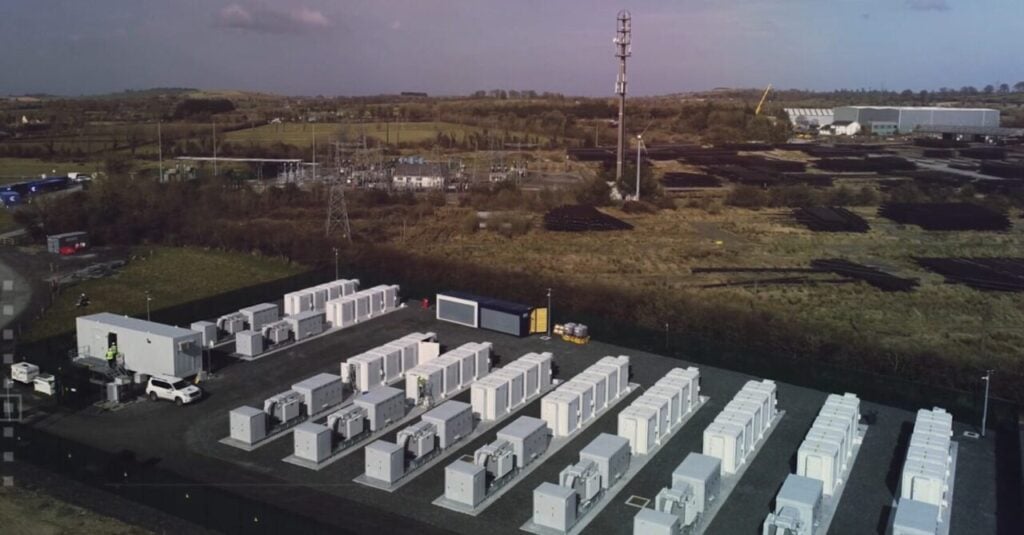
The Gore Street Energy Storage Fund (GSF) was one of the early movers in the UK BESS industry and now has operational assets in Great Britain (GB), Ireland, Germany, Texas and California.
Fund manager Gore Street Capital partner Alicja Kowalewska-Montfort discussed the fund’s overarching strategy, trends in optimisation in GB, and bidding into the UK government’s long-duration energy storage (LDES) scheme with its existing battery energy storage system (BESS) projects.
Enjoy 12 months of exclusive analysis
- Regular insight and analysis of the industry’s biggest developments
- In-depth interviews with the industry’s leading figures
- Annual digital subscription to the PV Tech Power journal
- Discounts on Solar Media’s portfolio of events, in-person and virtual
International strategy: ‘markets are driven by system operator requirements, not policy’
“A central aspect of Gore Street’s strategy is the belief that relying on single-grid exposure is not the optimal approach. We recognised the cyclic nature of markets early on, observing that markets and revenues are less driven by policies and more by system operator requirements, which result from fundamentals driven by renewables buildout,” Kowalewska-Montfort said.
“This diversification strategy has played out based on actual performance, as we expected, minimising revenue variability across our managed portfolio of BESS assets.”
That diversification has helped it weather the unprecedented revenue falls in 2023 and 2024 in the GB market, although it still had to reduce its dividend last year.
Kowalewska-Montfort: “While markets exhibit some correlation via gas prices, they are also largely distinct due to unique market mechanisms and policies. For instance, Texas is constrained and very much weather-driven, Ireland is strongly correlated to wind, and California benefits from strong levels of contracted revenues, among other distinctions.”
The firm is aiming for 750MW of operational BESS for the GSF fund, having reached 621MW with the Big Rock project’s energisation in California last month. Gore Street Capital also launched a Japan-focused fund last year, separate to GSF.
Kowalewska-Montfort’s colleague Paula Travesso, Gore Street Capital managing director, will be speaking on Day One of next week’s Energy Storage Summit 2025 in London.
GB optimisation: ‘no fundamental change in risk-sharing’
Concurrent with the Big Rock energisation, Gore Street also announced an improvement in GB revenues. Specifically, December 2024 revenues per MW annualised, for 1-hour systems, were the highest they had been since July 2023.
Kowalewska-Montfort: “The GB market is really starting to benefit from the thesis that traders can capitalise on the scarcity or abundance of renewables at different times of the day. We have observed a significant uptick in revenues, increasing back into the mid-teen levels just this winter, highlighting the growing opportunities stemming from the increasing penetration of renewables.”
One shift Energy-Storage.news has noted is the emergence of long-term tolls in the GB market, with big deals signed last year between the Gresham House Energy Storage Fund (GRID) and Octopus, and BW ESS/Penso Power and Shell.
However, Kowalewska-Montfort disagreed with our suggestion that these moves represent a fundamental shift in the commercial models for monetising BESS in GB, and the risk-sharing they entail.
“We’ve not seen a fundamental change in the risk-sharing between optimisers and owners. It’s still generally a net revenue-sharing mechanism. To some extent, there isn’t much creative thinking about warranty or degradation management; those are still fixed-basis assumptions,” she said.
“That said, the market is starting to spend much more time effectively marrying arbitrage with ancillary services and devising more creative strategies to monetise the asset class.”
Interestingly, Gore Street has started to enhance its in-house trading capabilities, part of beefing up its in-house competencies across the energy storage value chain. “We are currently monetising 78MW of assets in the GB market and are very happy with their performance. When we take on assets to optimise, we are benchmarked to ensure we are overperforming the benchmark.”
Company planning to participate in UK LDES scheme
An even more noteworthy takeaway from our conversation is that GSF is actively considering how it could participate in the UK government’s financial support scheme for long-duration energy storage (LDES), which may launch a first procurement in Q2 2026 (read more about it on our sister site Current).
The inclusion of lithium-ion BESS in the scheme is an controversial and as-yet-undecided point. Initially, the government looked set to exclude it entirely, as the scheme is focused on technologies that are not yet commercially viable, while its second proposal suggested including ‘novel, long-duration lithium’ projects.
“The LDES scheme sends the right signal to the market that the government sees the need to close the missing money problem. They were playing with the idea of excluding lithium-ion batteries, but that was ultimately scrapped. Lithium is established as the dominant technology, but there is not sufficient revenue for durations of 4 to 6 hours or more,” Kowalewska-Montfort.
“We are definitely looking at upsizing our projects to participate. Existing grid connections will be a solution to the scarcity of grid connections. I think the government will think about how to incentivise projects with existing grid connections rather than new projects with 2026 and 2027 grid connections.”
“They should consider what can be achieved with existing sites and how to price that in, as I think many people will be looking at long-duration lithium.”
She also suggested the minimum 50MW size is probably not right because of planning thresholds historically meaning a large number of 49.9MW sized projects – though this is on the basis that lithium-ion BESS projects will participate.
The firm’s pipeline in GB is ‘pretty much’ built out, she adds, meaning the firm would concentrate on amending the current portfolio and not increasing exposure in GB (in MW terms).

